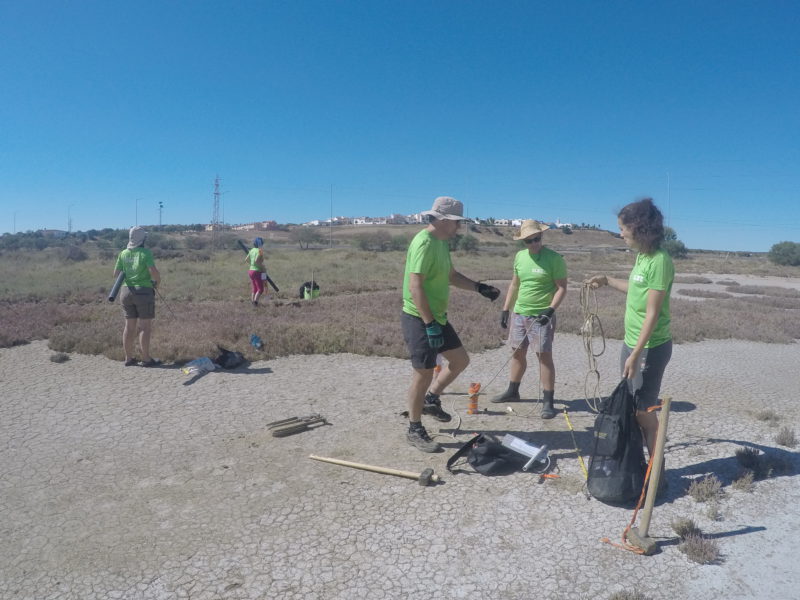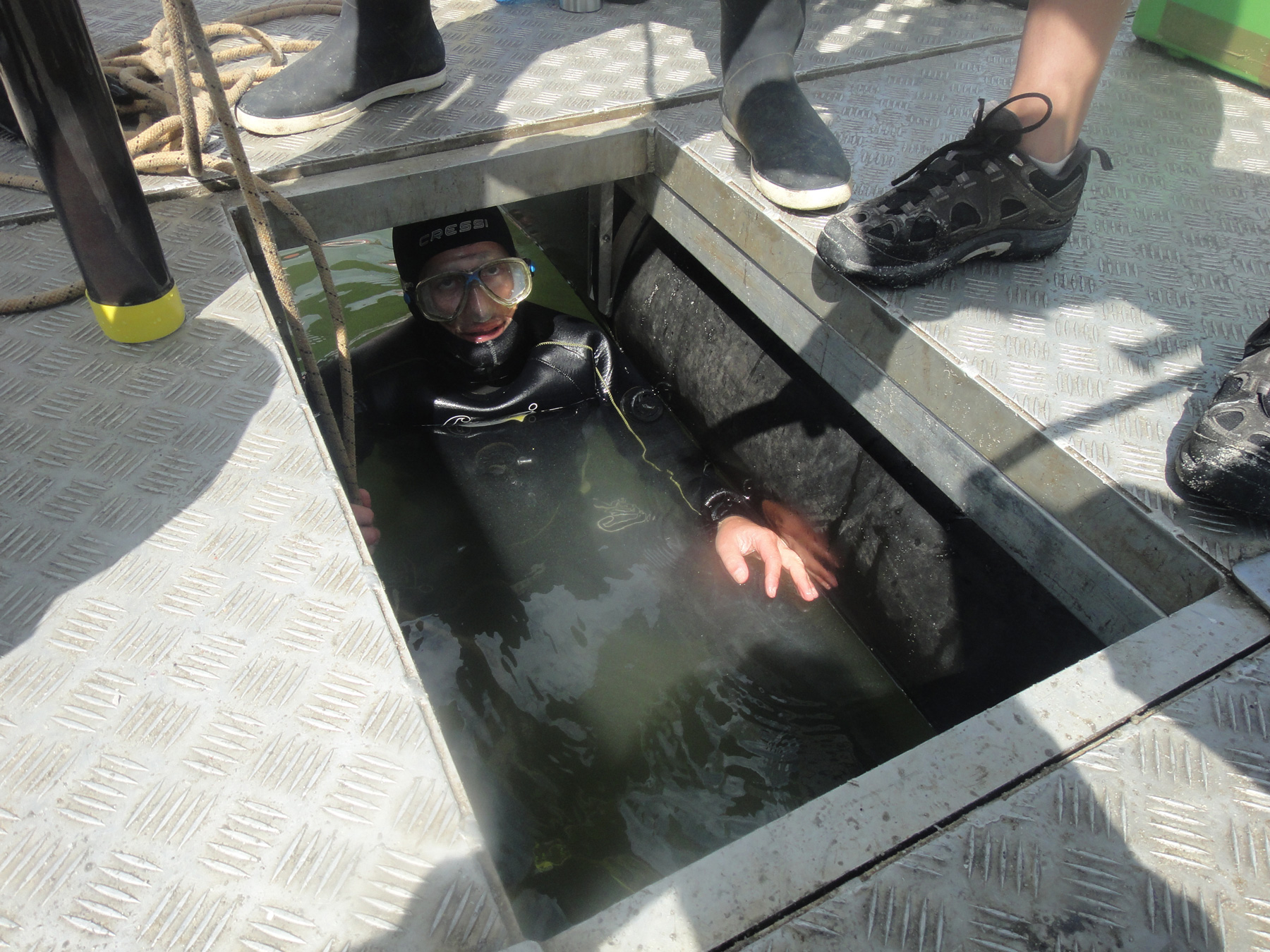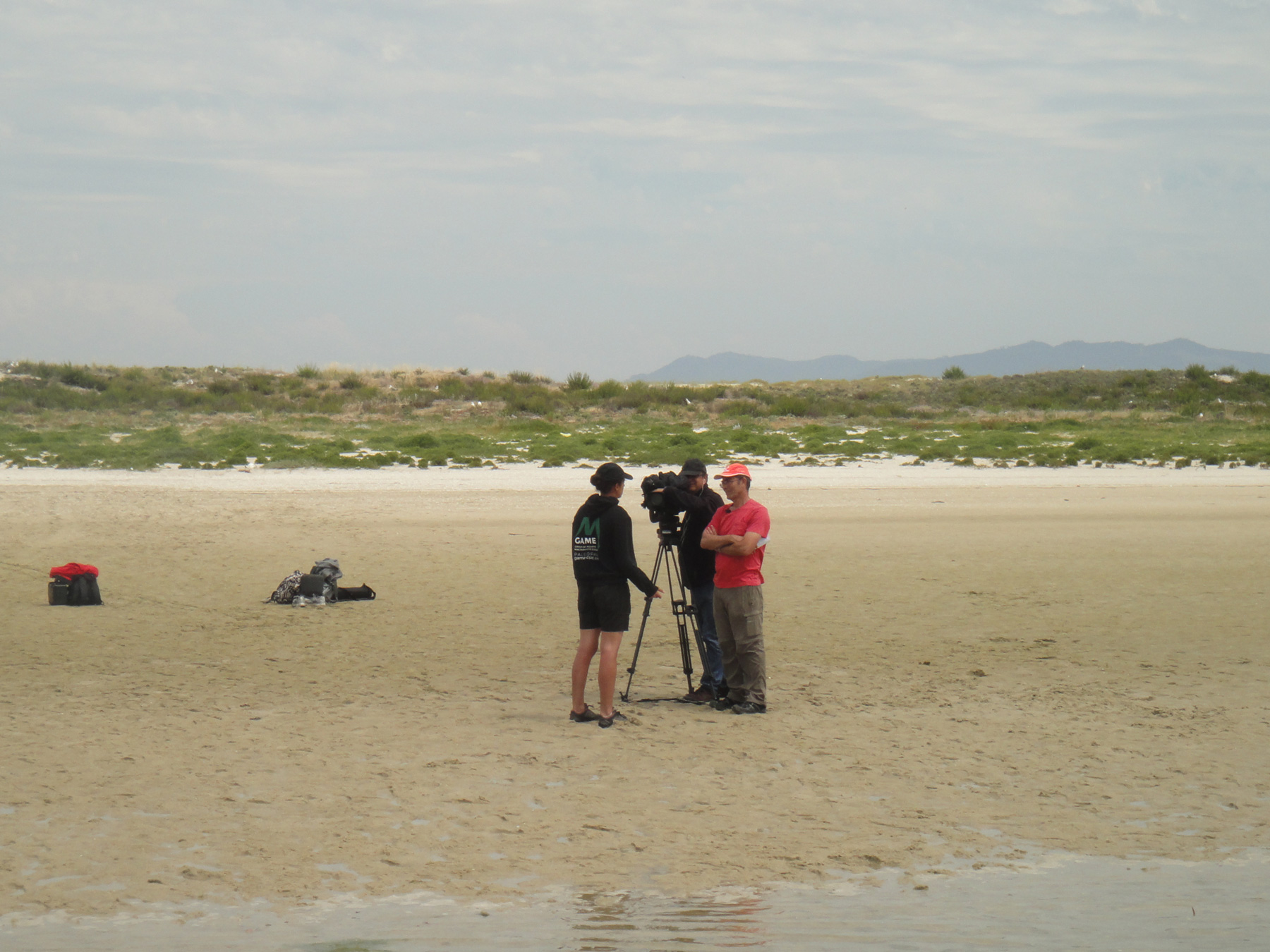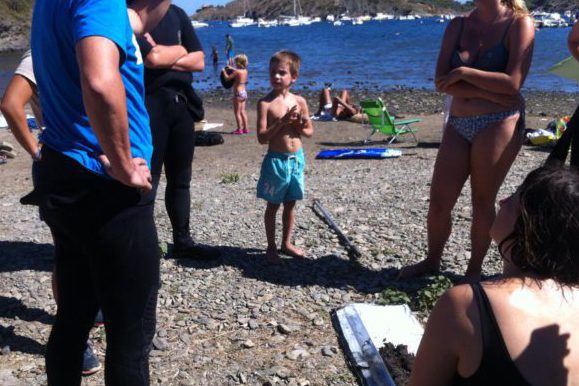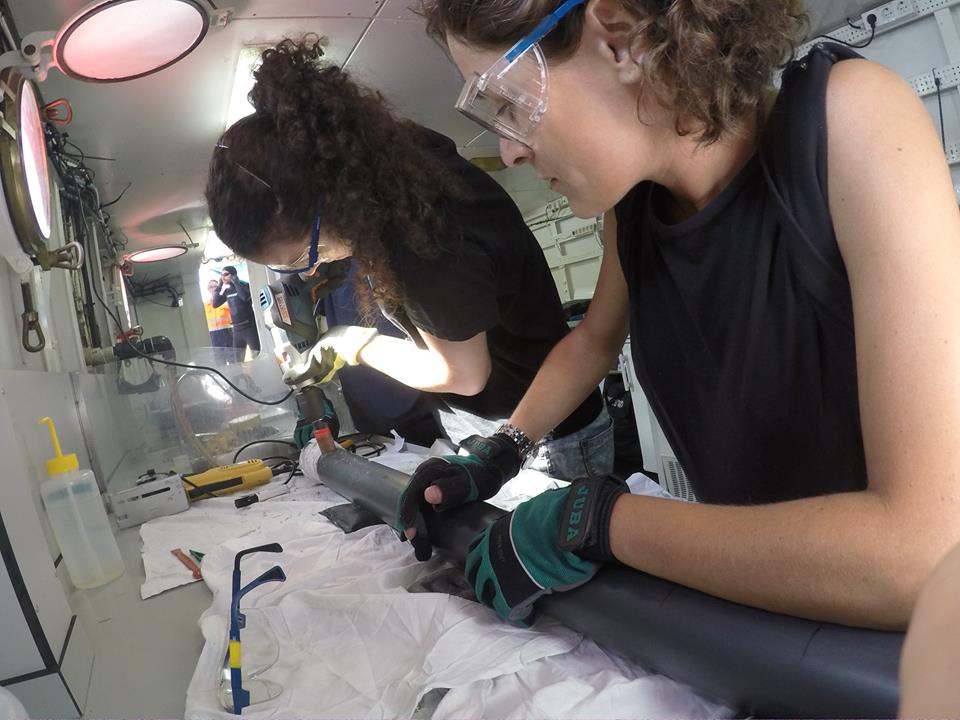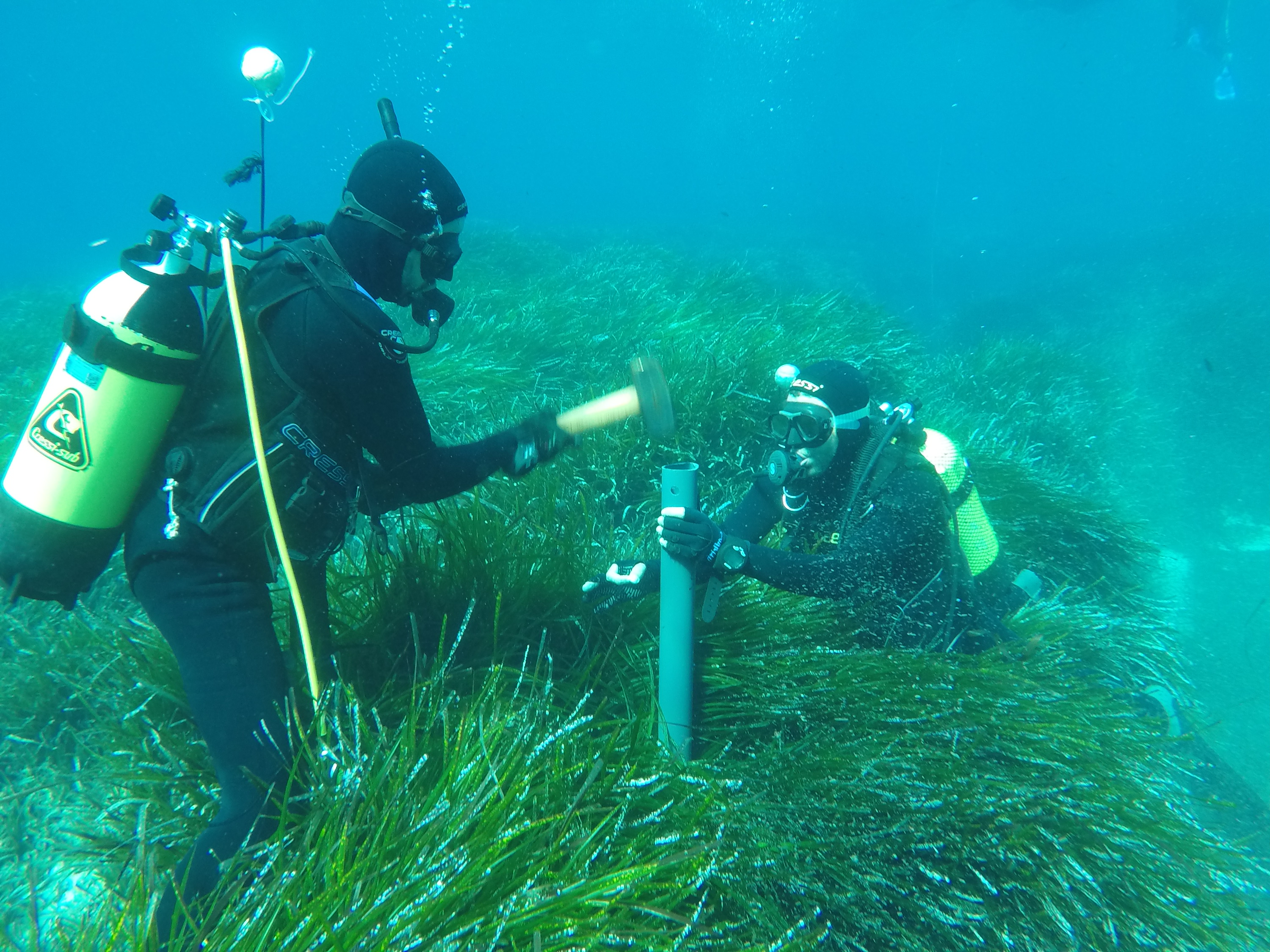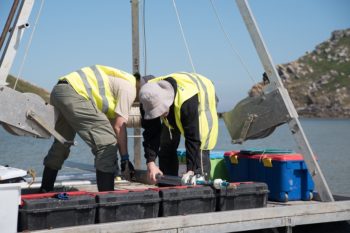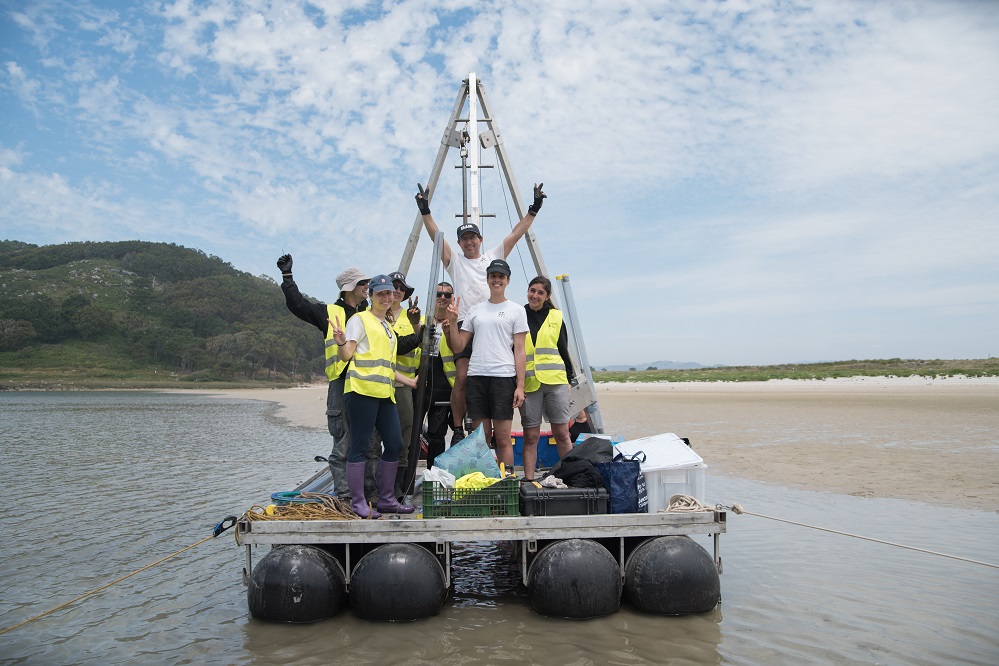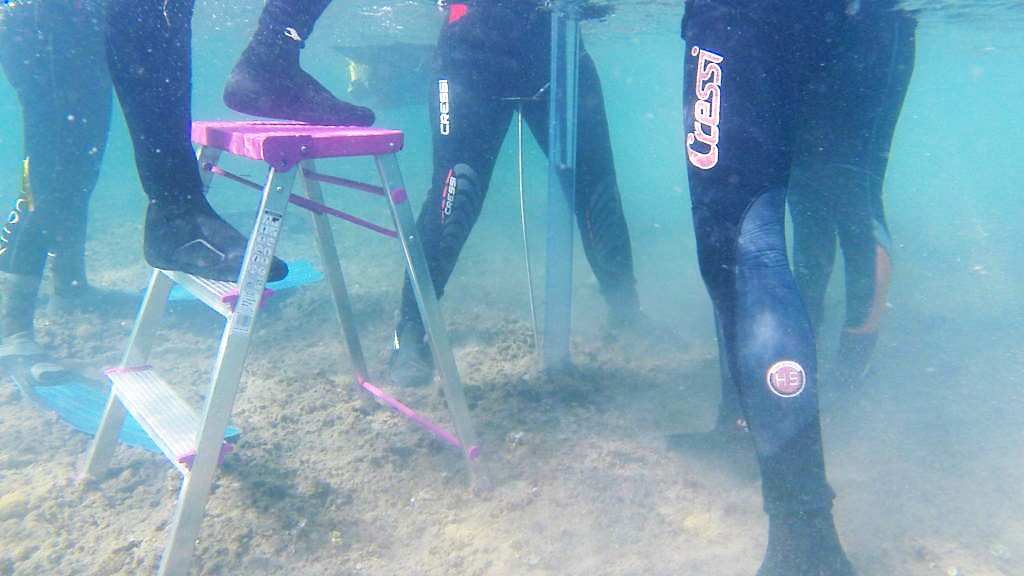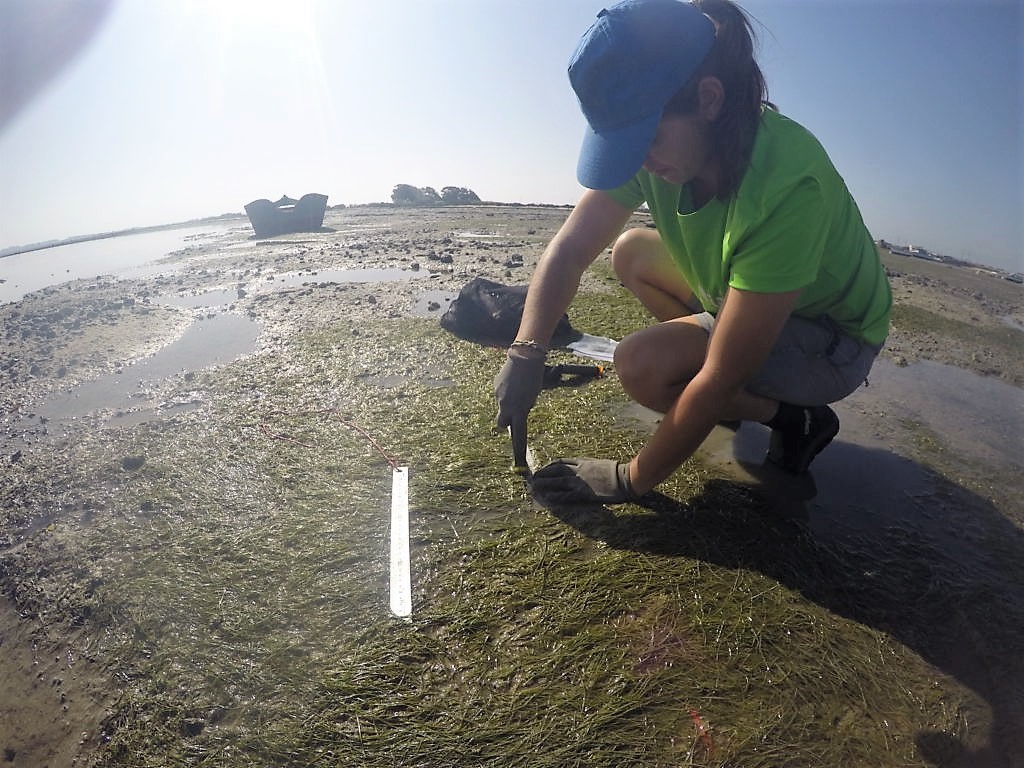Orígenes
La semilla del Grupo de Ecología de Macrófitos Acuáticos se sembraría hacia el año 2000. Para el estudio de la acumulación de carbono orgánico a largo plazo en los sedimentos de Posidonia oceanica, fue necesario desarrollar una técnica de muestreo (sondeos) practicable en aguas someras. Utilizando una plataforma flotante ligera, con un sistema roto-percutor de perforación y mucha motivación, conseguimos nuestro objetivo al obtener un sondeo de sedimento de 5 metros de longitud en la Bahía de Portlligat, Girona. La secuencia de sedimento obtenida resultó tener una coherencia crono-estratigráfica excelente, lo que anunciaba una gran potencial de estos suelos para (1) el estudio de la dinámica de acumulación de carbono y otros elementos asociados a largo plazo y (2) para su uso como archivo paleo-ecológico para todo el Holoceno. El sondeo 2000 o “Core 2000” es ya una legendario en nuestro grupo.
Misión y visión
El objetivo principal de GAME es proporcionar conocimiento de calidad y contribuir al aumento de la concienciación del papel clave que los ecosistemas litorales dominados por macrófitos tienen en la resiliencia de esta zona tan frágil de nuestro planeta: la frontera entre los ecosistemas terrestres y los litorales. Para ello, realizamos experimentos en mesocosmos e in situ, y aplicamos técnicas de paleo-reconstrucción ambiental con la finalidad de averiguar qué factores naturales y antrópicos están detrás de los cambios que observamos en los ecosistemas.
Para cumplir de la mejor manera con esta misión, creemos en la necesidad de dejar que la ciencia ocurra de manera natural, que sean la curiosidad y la pasión lo que nos mueva, y evitando la ciencia dictada por las modas o el oportunismo. La naturaleza es compleja; la complejidad pide tiempo para ser digerida. Los científicos necesitan tiempo para pensar (http://slow-science.org/). Al mismo tiempo, los científicos son humanos con el mismo objetivo que cualquier humano: disfrutar de la vida. “La investigación debe ser un juego, ya que solo jugando somos felices” (Ramon Margalef 1984). La ciencia es nuestro juego (GAME).
Equipo
La gente de GAME tiene en común la pasión por la naturaleza. Siempre con ganas de aprender y descubrir, comprometidos con el rigor que pide una investigación científica honesta. Entendemos como una necesidad la colaboración con otros grupos de cualquier parte del mundo. Y lo disfrutamos. GAME no tiene fronteras y no hace distinciones entre razas, sexo, o cualquier otra condición.
Nuestro Centro
GAME tiene su cuartel general en el Centro de Estudios Avanzados de Blanes (CEAB), perteneciente al Consejo Superior de Investigaciones Científicas (CSIC). El centro se encuentra rodeado de naturaleza, a unos 5 minutos de una de las calas más bonitas de la Costa Brava. El CEAB, es una comunidad integrada por unas 100 personas incluyendo personal investigador de plantilla, personal técnico y administrativo, estudiantes (desde la etapa de instituto hasta doctorandos), post-docs e investigadores visitantes. Es una comunidad muy activa y familiar, cuyo tamaño proporciona la masa crítica necesaria para poder establecer discusiones de gran riqueza multidisciplinar, a tiempo que se conserva el sentido del grupo. Más sobre nosotros.
Algunos numeros
El equipo GAME está típicamente formado por una decena de miembros activos y más de 20 colaboradores, tanto nacionales como internacionales. Portugal, Italia, Francia, Países Bajos, Inglaterra (Gales), Dinamarca, Suecia, Alemania, Croacia, Malta, Grecia, Marruecos, Túnez, Egipto, Kenya, Brazil, Méjico, Canadá, USA, y Australia son los países principales con los que nuestro equipo colabora (o ha colaborado en el pasado) en actividades científicas o de formación.
Entre todos los miembros de GAME, se han dado alrededor de 200 conferencias internacionales, se han publicado unos 600 artículos en revistas científicas arbitradas que han recibido entorno a las 10 000 citas y dado lugar a un índice h de 60.
Formación
En nuestro grupo damos gran importancia al fomento de las vocaciones científicas de quienes colaboran o trabajan con nosotros. Desde su creación, nuestro grupo ha venido formando decenas de estudiantes de todo el mundo, incluyendo más de 20 Tesis Doctorales, más de 60 Tesis de Máster, así como un incontable número de trabajos de fin de grado, practicums universitarios o prácticas de empresa. !Consulta las opciones!
Desde su orgien en el año 2000, GAME ha inlcuido en su equipo multitud de profesionales y ha propiciado colaboraciones y proyectos entre grupos de investigación de todo el mundo. Actualmente, GAME cuenta con un equipo de profesionales del medio ambiente especializados en varios ámbitos, lo que permite al grupo disponer de una visión amplia y generosa de los conceptos y proyectos que se llevan a cabo.

